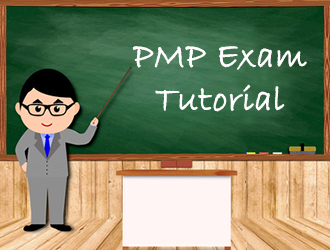
Welcome to the PMP Exam Tutorial! We hope you will take something from these pages that will help you pass the exam.
Each page of the tutorial is dedicated to one knowledge area. On each page the processes that are part of the knowledge area are described and their relationship to the overall project model are explained. The inputs, tools and techniques, and outputs are listed for easy reference.
Have fun, and good luck on your PMP exam.
- Project Integration Management
This knowledge area covers the creation of the project charter and project management plan, as well as processing of project changes. It includes anything that is not included within the other knowledge areas. - Project Scope Management
The project scope defines the project. It specifies what is and isn’t part of the project, and where its boundaries are. Consequently, good project managers must ensure it is well defined, and manage it accordingly so that project issues don’t arise. - Project Time Management
Since a project has a finite duration, ensuring that it finishes on time, or managing the outfall if it doesn’t, is one of the important tasks of a project manager. This knowledge area ensures you can manage finite resources to deliver the project on time. - Project Cost Management
Most projects have a finite budget. This knowledge area ensures you know what to do to stay within that budget and deliver the project without cost overruns. - Project Quality Management
Expectations of quality are inherent in any project, but they can be elusive. This knowledge area ensures you can provide the quality products or services to the expectations of all stakeholders. - Project Human Resource Management
The project team is often cited as the most important part of a project. Projects succeed or fail most often because of the team. Hence, this knowledge area gives you the skills to acquire and develop the project team to ensure long term success. - Project Communications Management
Often project managers can be forgiven for problems on the technical side if their relationships with stakeholders are good. That is, good communication can cover up alot of sins. This knowledge area ensures you will get the maximize this benefit out of this human element of project management. - Project Risk Management
Unexpected events can derail a project when everything else goes right. Planning for, and mitigating, those risks is a fundamental aspect of project management as well as leadership as a whole. Although you can never have a plan for everything that can happen, this knowledge area gives you the skills to make sure you, and your supervisors, can sleep well at night. - Project Procurement Management
Most projects need to purchase external products and/or services. Planning out the requirements, as well as writing out the requests for proposals, invitation to tenders, and so forth, are the domain of this knowledge area. - Project Stakeholder Management
Sometimes you can do everything else right, but lose the relationship with a key stakeholder who causes a delay, budget overrun, or other serious problem (or worse yet, cause complete project failure). Make sure that never happens with the Project Stakeholder Management knowledge area.
